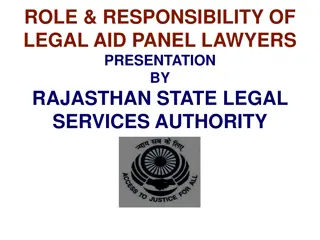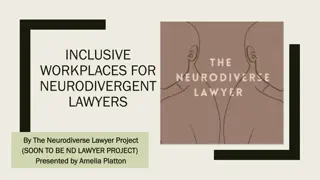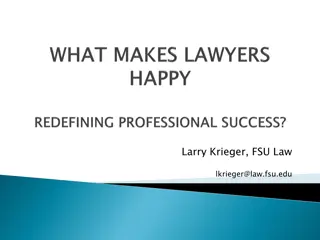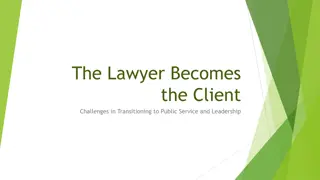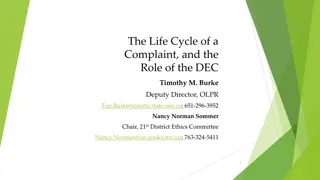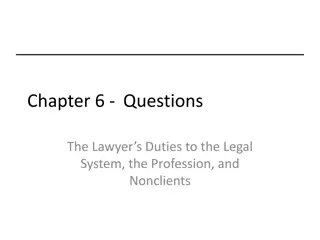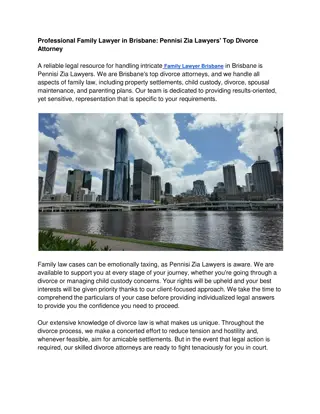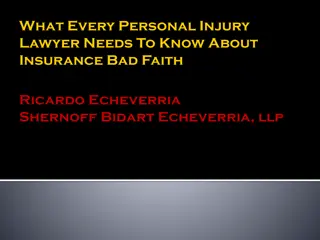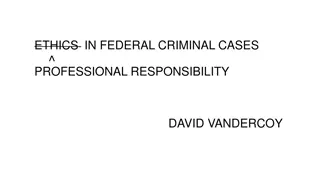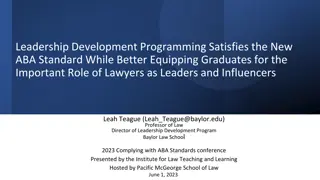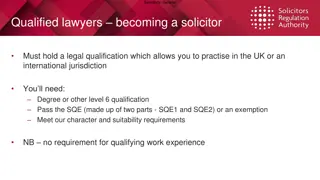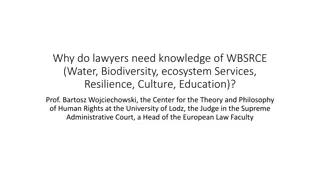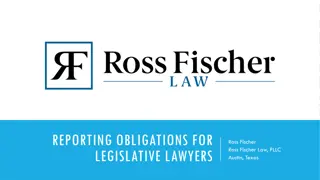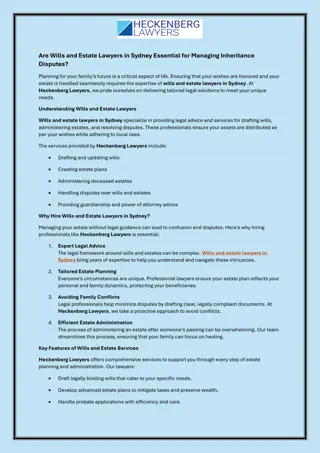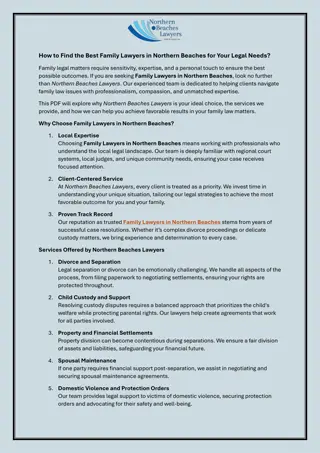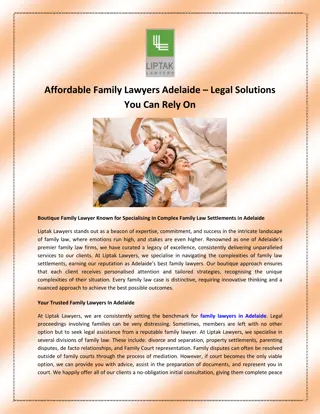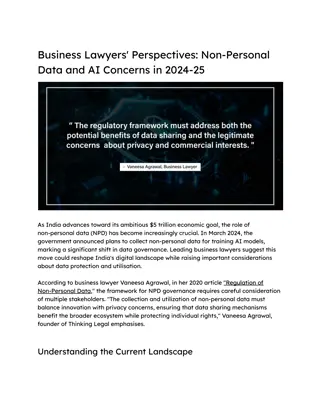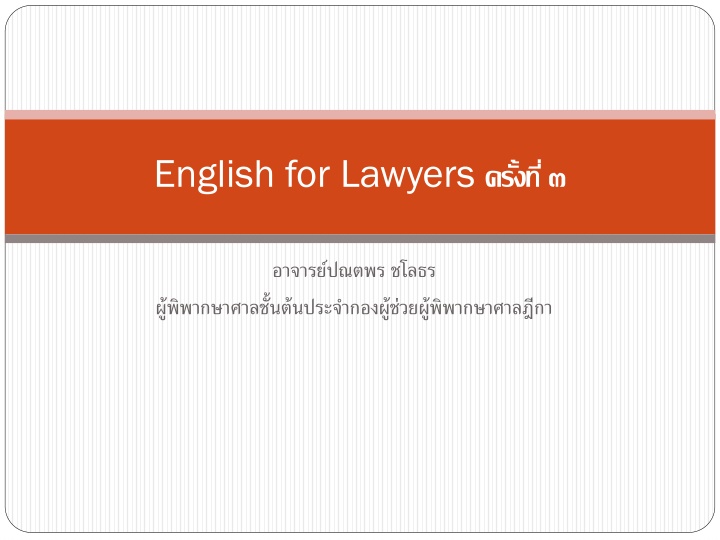
Passive Voice in English Grammar for Legal Writing
Learn about passive voice in English grammar with examples and when to use it in legal writing. Understand the difference between active and passive voice, and explore instances where passive voice is preferred.
Download Presentation

Please find below an Image/Link to download the presentation.
The content on the website is provided AS IS for your information and personal use only. It may not be sold, licensed, or shared on other websites without obtaining consent from the author. If you encounter any issues during the download, it is possible that the publisher has removed the file from their server.
You are allowed to download the files provided on this website for personal or commercial use, subject to the condition that they are used lawfully. All files are the property of their respective owners.
The content on the website is provided AS IS for your information and personal use only. It may not be sold, licensed, or shared on other websites without obtaining consent from the author.
E N D
Presentation Transcript
Passive Voice Active voice: In active sentences, the subject is active or the subject performs the actions. The cow (Subject) is eating (Verb) grass (Object) Passive voice: In passive sentences, the subject is no longer active or the subject is acted upon by the verb. Grass (Subject) is being eaten (Verb) by the cow (Object) is, am, are (was, were)+3rdverb is,am,are+being+3rdverb
Passive Voice Auxiliary Verb+be+3rdVerb Can be done Must be done Should be done Have to be done
We often prefer to use the passive voice when: 1. We do not know who the agent is: My pet rabbit has been let out.' I had the feeling that I was being followed.' instead of: 'I don t know who did it, but someone has let out my pet rabbit.' 'I had the feeling that somebody was following me.'
2. When it is obvious to the listener or reader who the agent is: 'I am told to remove all the trays.' 'She learned that she was being paid less than her male colleagues.' instead of: My mom tells me to remove all the trays.' 'She learned that the firm was paying her less than her male colleagues.'
3. When it is not important to know who the agent is: 'Do you need a ride?' 'No thanks, I m being picked up.' instead of: 'Do you need a ride?' 'No thanks, someone is picking me up.'
4. When the agent has already been mentioned: In the next session of parliament, new laws will be introduced. instead of: 'In the next session of parliament, the government will introduce new laws.'
5. When people in general are the agents: 'All the dictionaries can be borrowed from the central library. instead of: 'You can borrow all the dictionaries from the central library.
Simple Present Tense Simple Present Tense is,am,are+3rdverb He lights the candle. The candle is lighted by him. He does not light the candle. The candle is not lighted by him. Do you eat meat? Is meat eaten by you?
Simple Past Tense Simple Past Tense was,were+3rdverb She finished work. Work was finished by her. She did not finish work. Work was not finished by her. Did she finish work? Was work finished by her?
Legislation: Constitution, Bill, Act, Decree, Statute Legislation (N) Tax Legislation Laws Constitution (N) Constitutional Court Bill (N) A bill is proposed legislation under consideration by a legislature. A bill does not become law until it is passed by the legislature
Legislation: Constitution, Bill, Act, Decree, Statute Act (N) Decree (N) Royal Decree Emergency Decree Statute (N)
Misc Recommendation of the President of the Supreme Court (regarding) Regulation Regulation Judicial Regulation Annoucement/Notification
Sentences This Act shall come into force after ninety days following the date of its publication in the Royal Gazette have elapsed. This Act shall come into force after ninety days as from the date of its publication in the Government Gazette This Notification shall come into force as from the day following date of its publication in the Government Gazette.
Sentence The President of the Supreme Court shall be in charge of this Act https://oia.coj.go.th/th/file/get/file/20200503459f65965 b44ddd09e3c950d45bef0e3122112.pdf
Short Reading The Defendant No.2 committed wrongful act pursuant to Section 420 of Civil and Commercial Code. The Defendant No.1 is an administrative agency according to Section 4 of Act on Liability for Wrongful Act of Officials B.E. 2539 (1996) and an original affiliation of the Defendant No.2. Consequently, the Defendant No.1 was liable (to make compensation for damages) to the Plaintiff (for damage) arising from the wrongful act of the Defendant No.2 in performance of their duties pursuant to Section 5 paragraph one of the said Act. The Supreme Administrative Court affirmed the judgment of the Central Administrative Court
To be liable to someone for something (damage, act, conduct, injury) To be liable for (=have to pay) damages/costs/debts
http://www.admincourt.go.th/admincourt/upload/webcm sen/Judgment/Judgment_300516_075140.pdf
Reading and Sentences Section 96. A person under any of the following prohibitions on the election day shall be the person who is prohibited from exercising the right to vote: (1) being a Buddhist monk, Buddhist novice, ascetic or priest; (2) being under revocation of the right to vote, whether or not such case is final; (3) being detained by a warrant of the Court or by a lawful order; (4) being of unsound mind or of mental infirmity
Present Perfect Tense Have, has + V3


